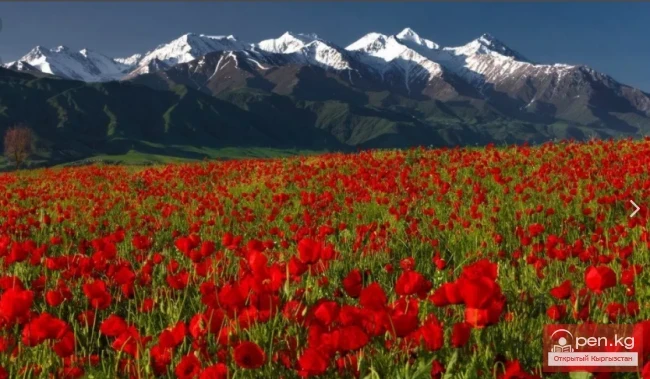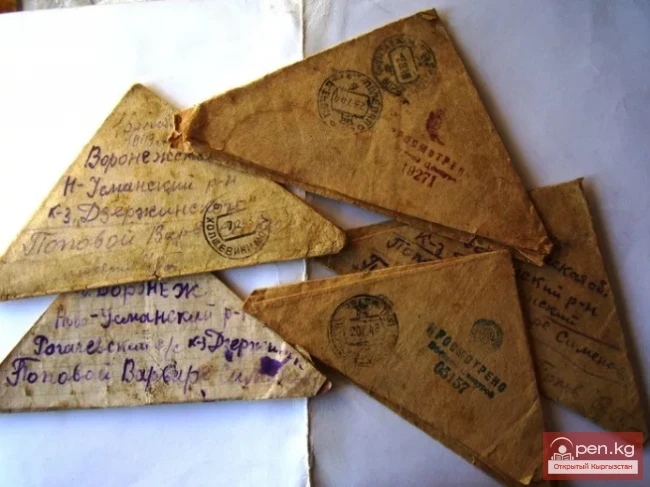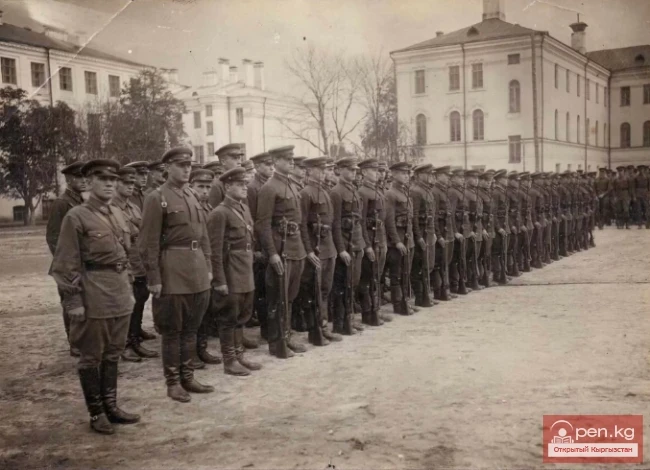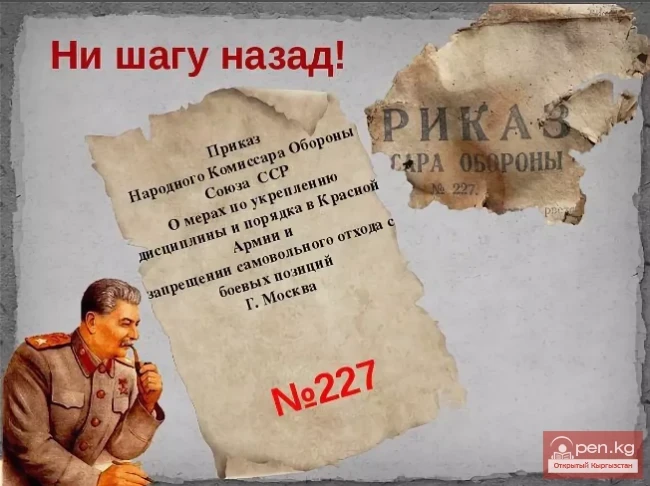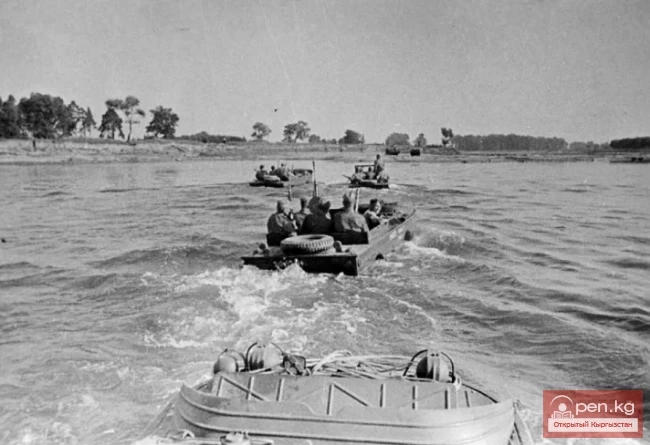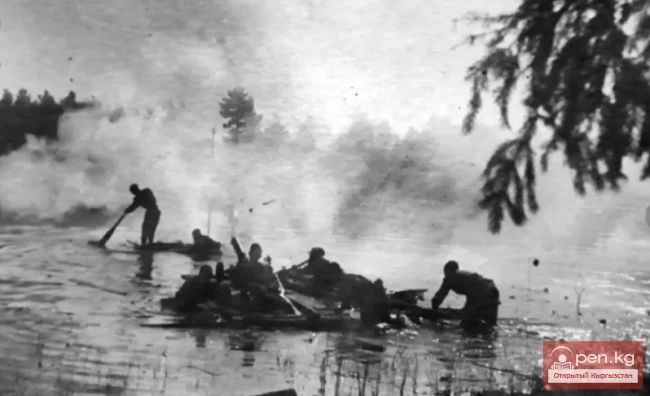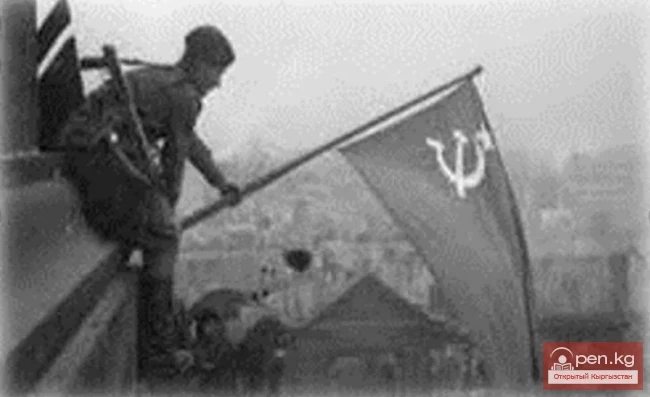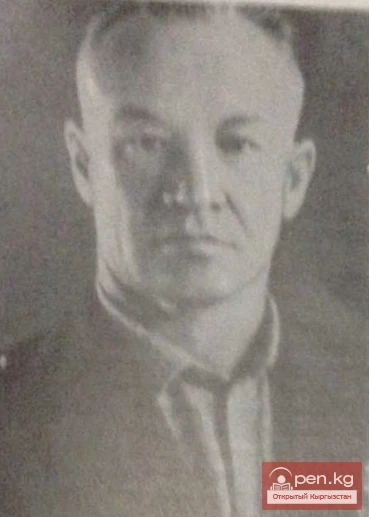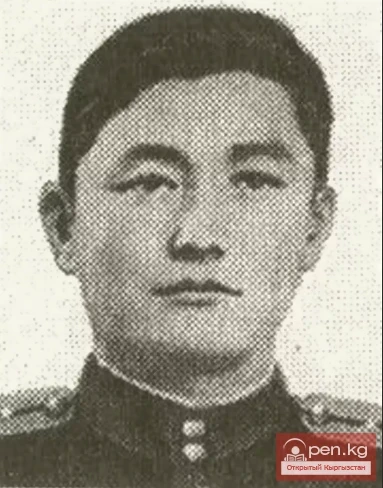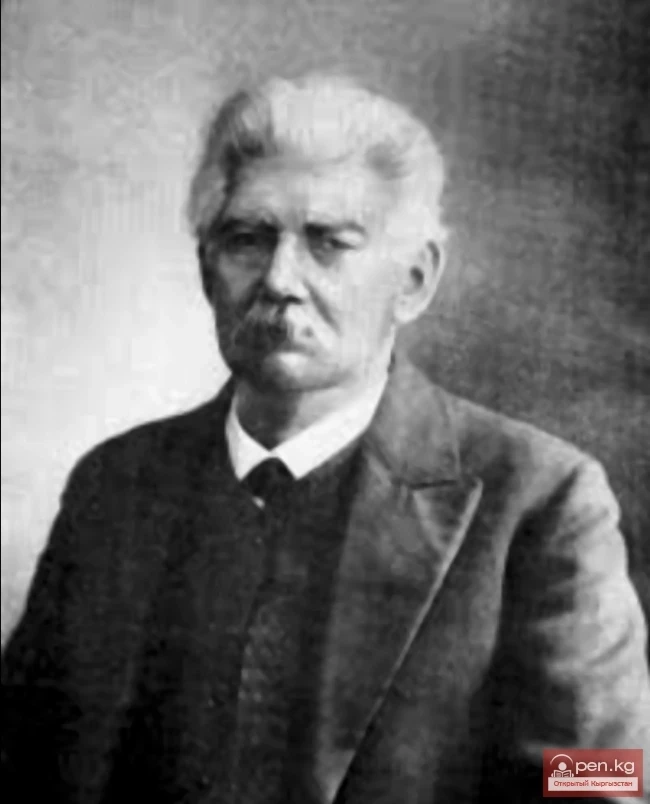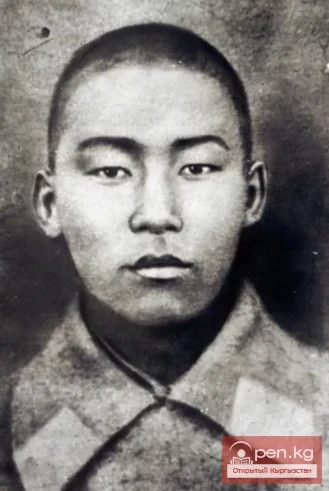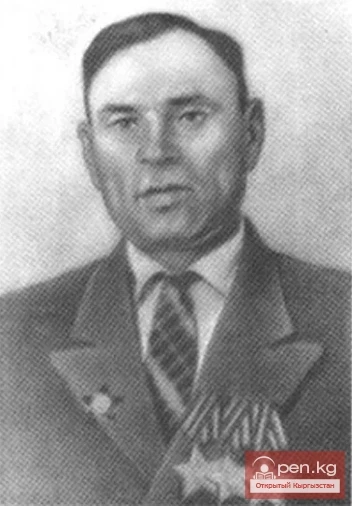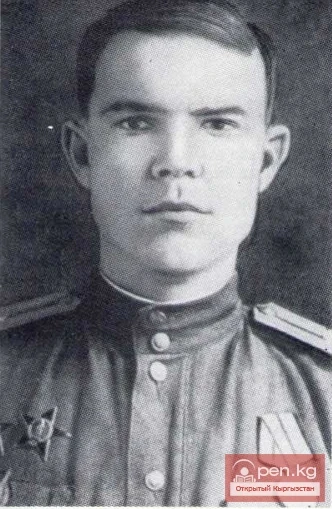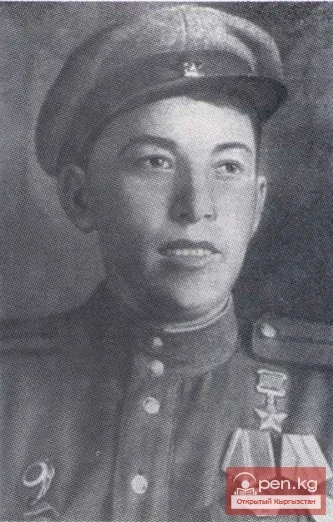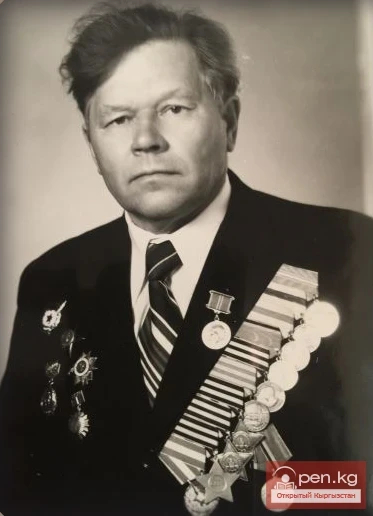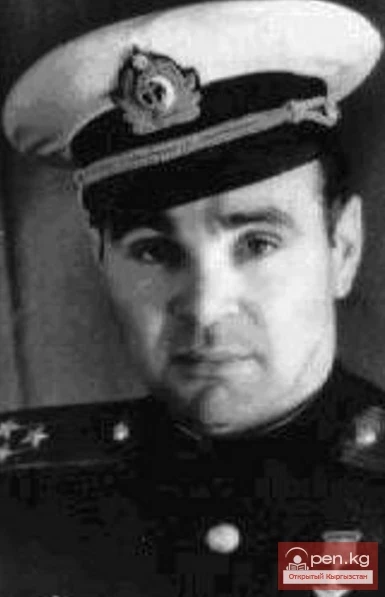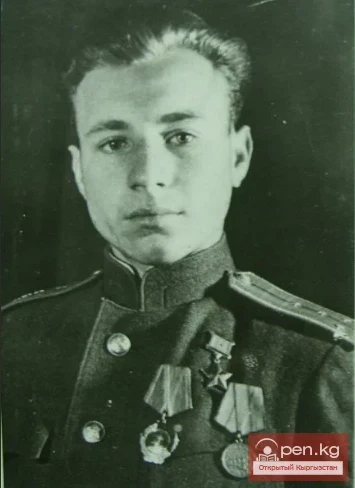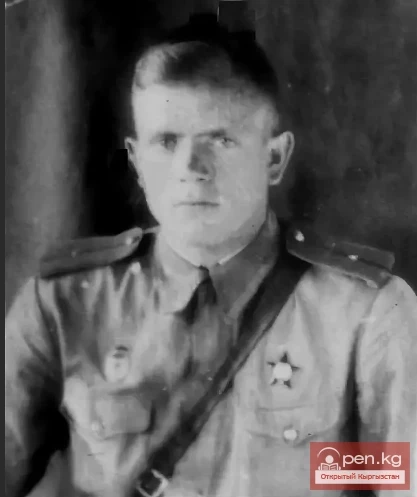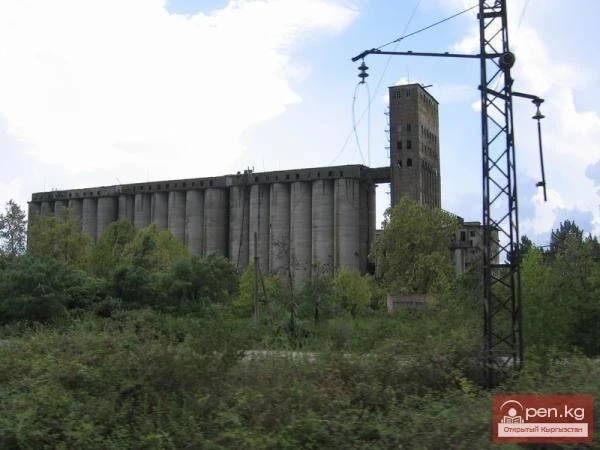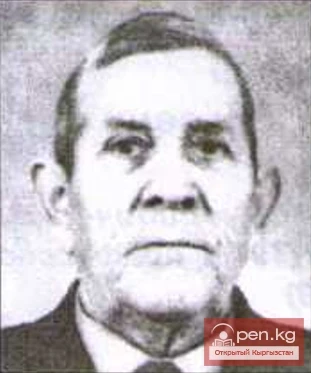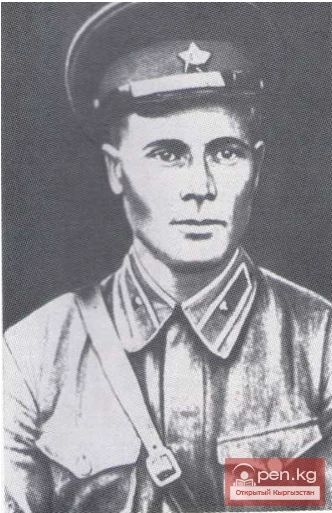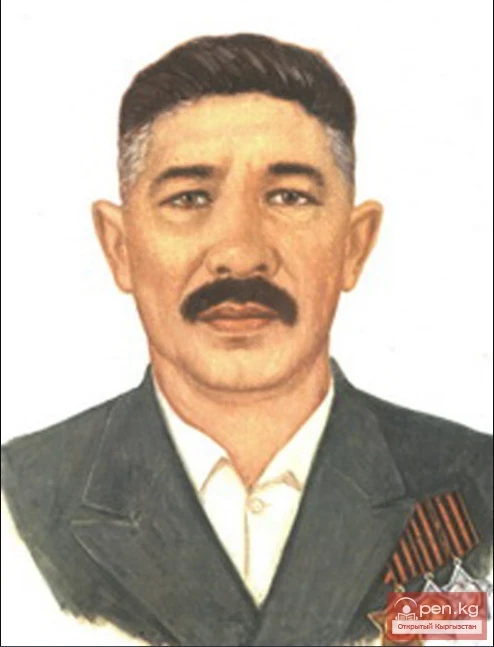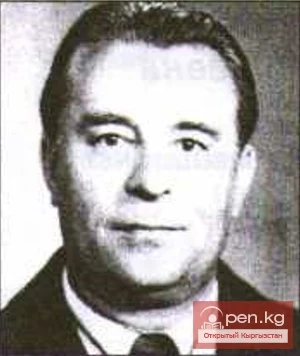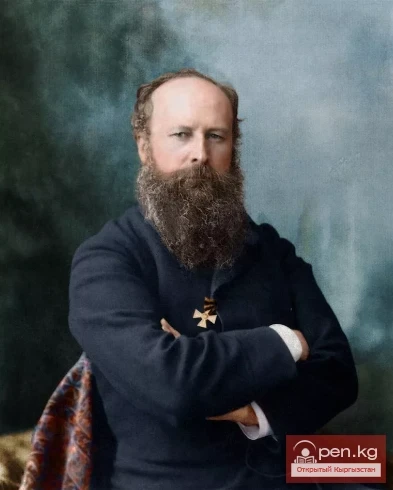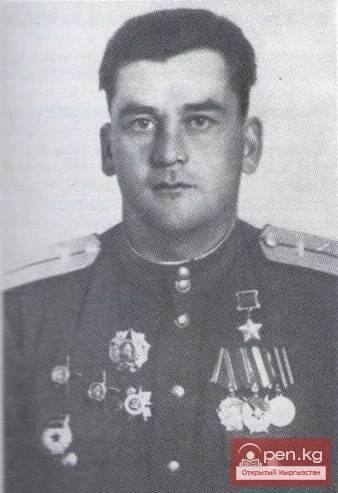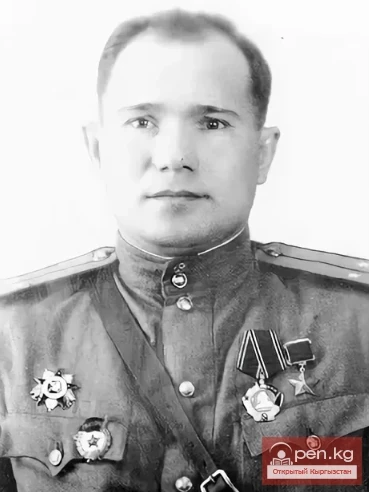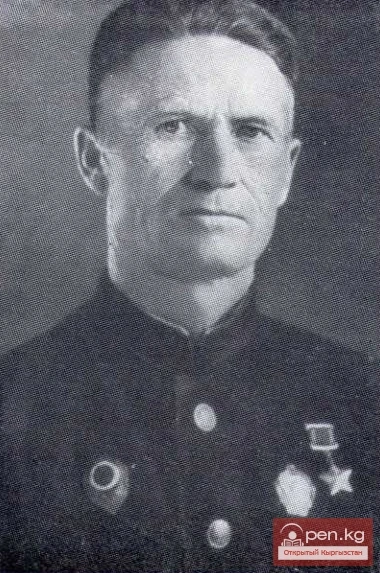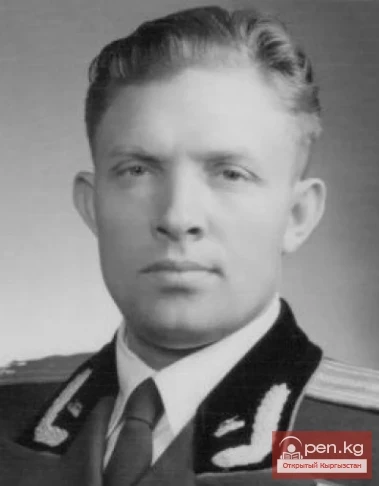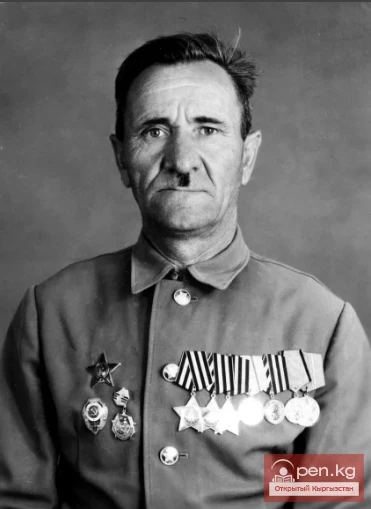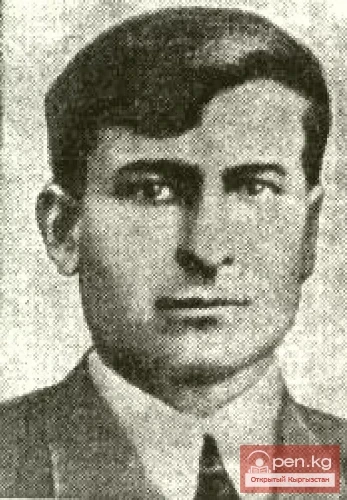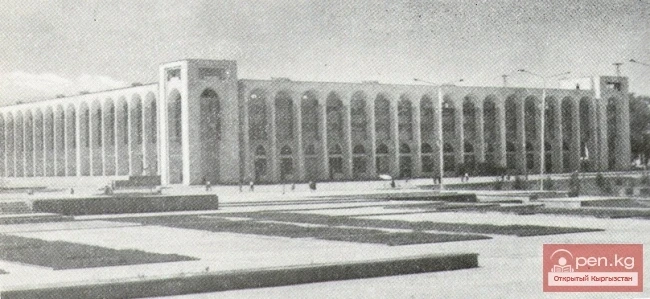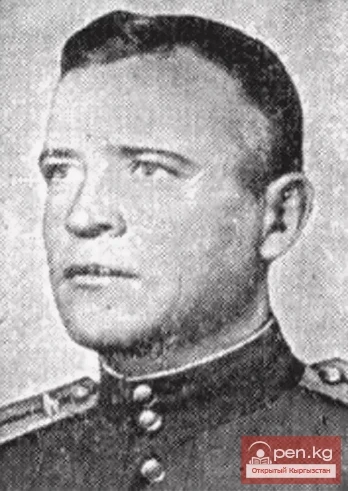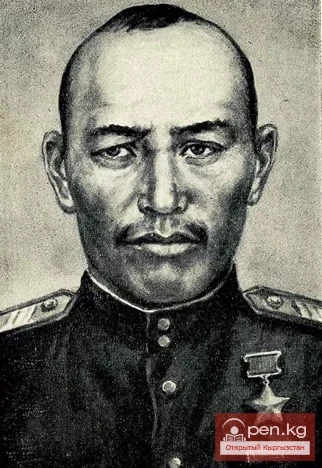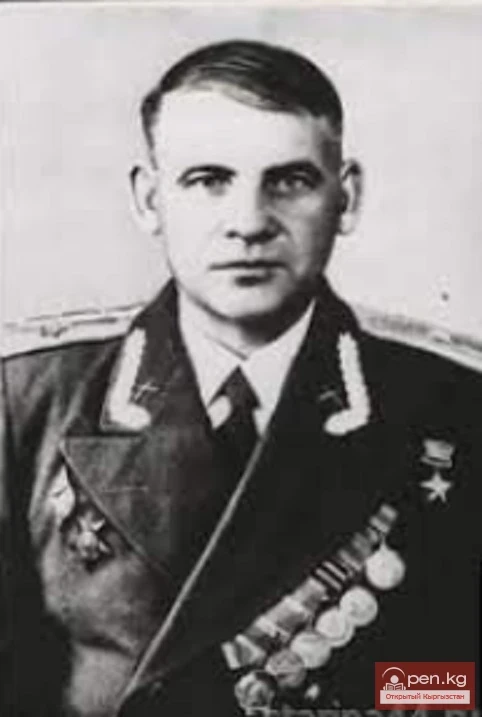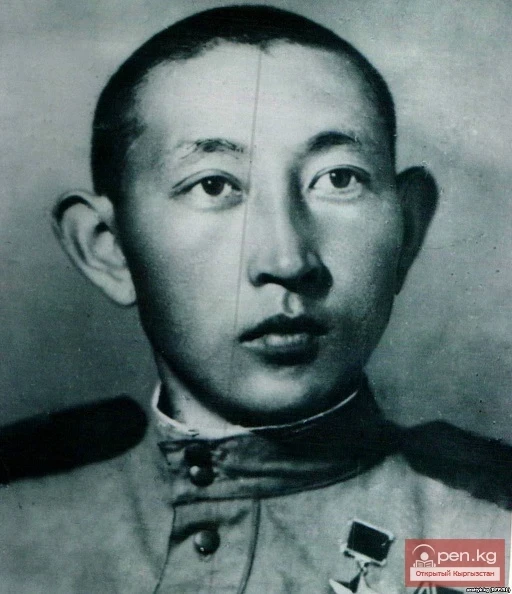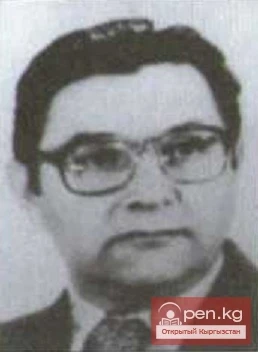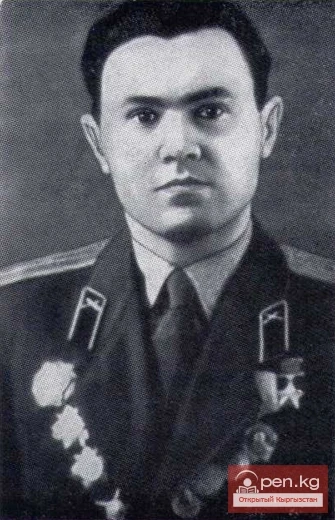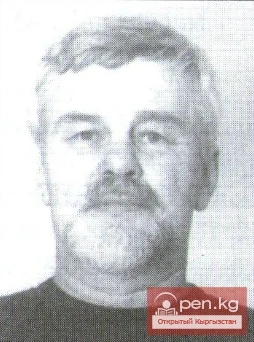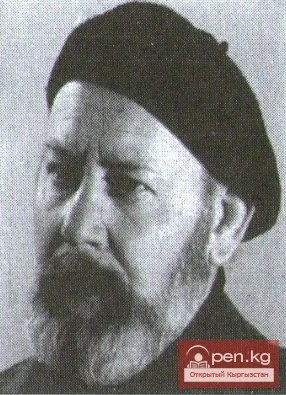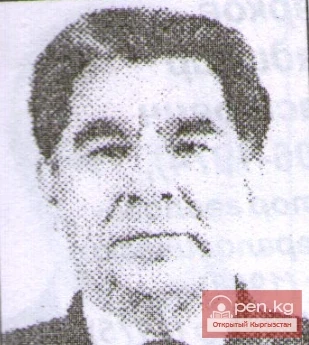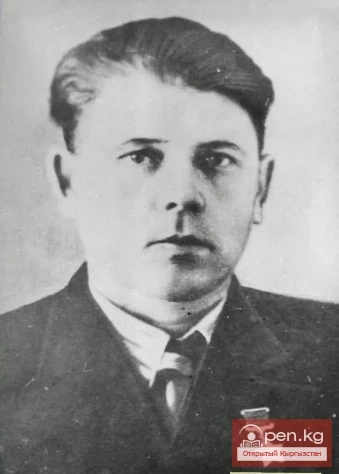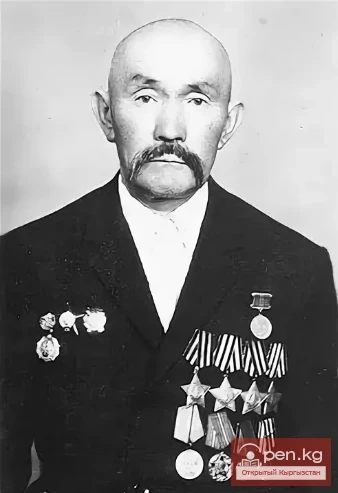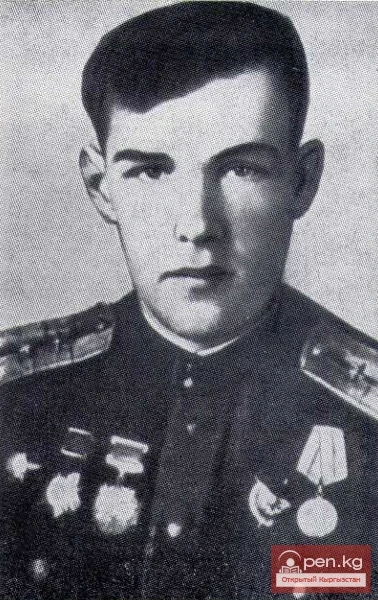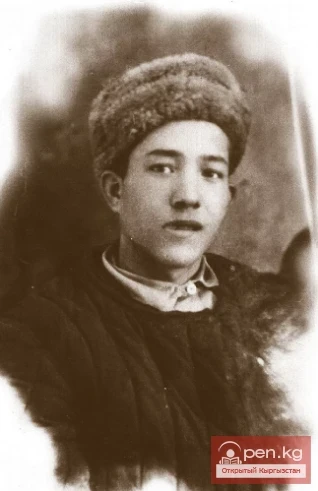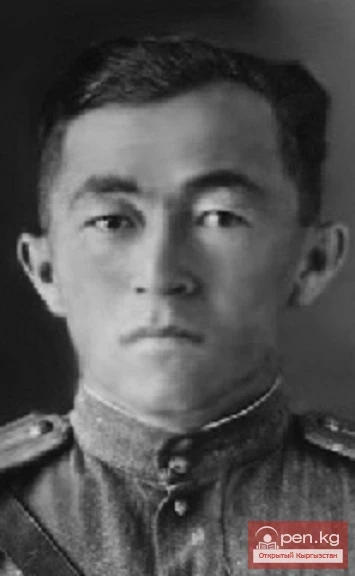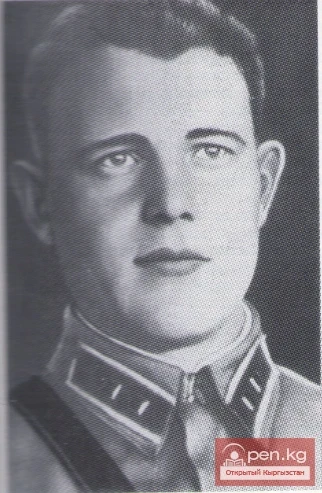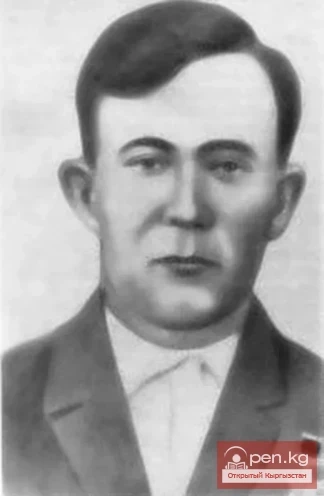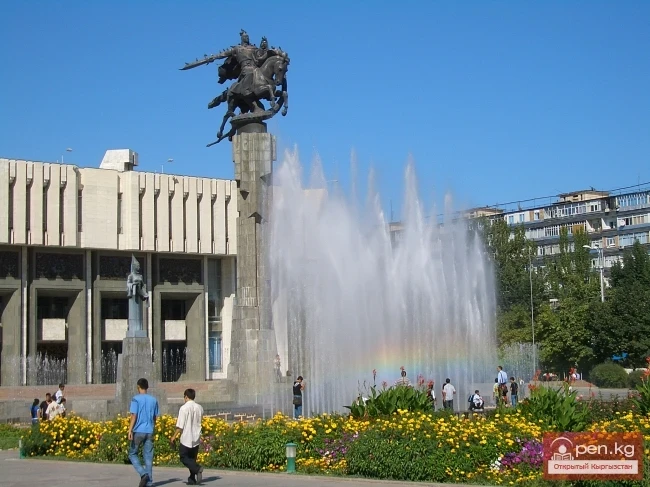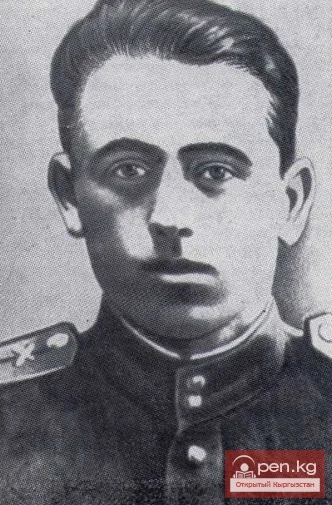
Hero of the Soviet Union Stepanenko Vasily Vasilievich
Vasily Vasilievich Stepanenko was born in 1923 in the city of Pavlodar. Russian. Member of the Communist Party of the Soviet Union. Before the Great Patriotic War, he lived and studied in the village of Belovodskoye in the Frunze region of the Kyrgyz SSR. Commander of a mortar battery, Guards Captain.
Since 1941, he was a cadet at the Frunze Military Infantry School. From 1942, he participated in combat operations on the Central and 1st Ukrainian fronts, where he proved himself to be a brave and resourceful commander.
On April 10, 1945, for his courage and bravery displayed in battles against the German fascist invaders, and for exemplary performance of command assignments, Vasily Vasilievich Stepanenko was awarded the title of Hero of the Soviet Union.
On May 2, 1945, V. V. Stepanenko heroically perished. His name is carried by secondary school No. 2, a pioneer detachment, and a street in the village of Belovodskoye.
LETTERS FROM THE FRONT
Spring is coming to the earth with a green rustle, the gardens have bloomed. The scarlet flames of poppies blazed on the mountain slopes of the Kyrgyz Ala-Too. And it seems that their reflection shines in the pioneer ties of the children gathered for another hike to the sites of military glory.
At the main entrance of Belovodskoye Secondary School No. 2, there is a marble memorial plaque. It was installed here in memory of its former student — Hero of the Soviet Union Vasily Vasilievich Stepanenko. Both the school and the street on which it is located bear his name.
Open the front door — and from the portrait hanging on the wall, the large gray eyes of a young man will gaze at you. And then you will long look into the sun-tanned face with a high forehead and childishly puffy lips.
Decades have passed since Vasily Stepanenko left the walls of his native school. His peers have long since aged. But he remains a young man with childishly puffy lips, just as the artist depicted him from a family photograph. And only the "Golden Star," lovingly inscribed on his chest, distinguishes him from today's tenth graders.
Vasily Stepanenko was gone when these children were not yet in the world. But they know and remember him. He left them his immortal feat, his letters.
“April 12, 1945.
...Today I enter battle, the last battle before the end of the war. Happy is he who remains alive. Having gone through trials, he will be able to truly appreciate life in a peaceful setting, to rejoice in it.
I look around at my fighters. Tonight, probably, many of them will not survive. But the living will strive for Berlin, for victory. As always, I hope for my youthful happiness!”
Happiness did not elude Vasily. This was the penultimate battle of his life. The last one would be ahead. The one he had been preparing for since childhood.
His generation knew that a deadly struggle with fascism awaited them. The burning of the Reichstag. The blood and sorrow of Spain.
The capture of Czechoslovakia. The disgrace of France. These alarming events were lived by Vasily and his peers.
He dreamed of becoming a fighter pilot, to fly as the legendary Valery Chkalov did. He tempered his will and body.
At home, he did all the hardest work: dug the garden, dug a well, chopped firewood. And he hid his bloodied palms from his mother and sisters.
He loved poetry, loved music. They opened before him a vast, bright world of human feelings, filling the life of a village boy with deep meaning.
He always strived for independence. For independence in judgments and actions. In one of his letters to his mother, he wrote:
“You burden yourself unnecessarily with thoughts about me. You don’t need to. There was a time when you took care of me, tried to dress me, gave me the opportunity to finish ten grades. For this, I am grateful to you. Now transfer your cares to my sisters: they need it.”
These lines, written by Vasily Stepanenko — a cadet of the Frunze Infantry School, are filled with modesty, warmth, and love for his family:
“For the second time, Mom, I tell you: why do you send me so many products? If you keep sending this much, I won’t take anything. I know how these packages affect you. With their help, you could have been fed for another day or two. I don’t need meat or lard. If you could send half a kilo of bread or maybe some candy — nothing more.
Mom, somehow send me foot wrappings if you have them — paper socks, if not — don’t try to get them.”
Vasily dreamed of becoming a pilot. But the war had its own plans for his fate.
“In our class, there were three friends, united by one dream,” recall war veterans I. F. Lozitsky and I. V. Kapranov. “At the district military enlistment office, we were listed as candidates for the Air Force. We eagerly awaited a call to flight school. But we were sent to infantry instead. Even a report to the commander of the Turkestan Military District didn’t help.
In July 1942, we graduated from the Frunze Infantry School and were sent to the front as lieutenants. And on August 5, near Voronezh, we were assigned to different units. At that time, none of us thought that we would see Vasily for the last time.”
The military situation on the Voronezh front was very difficult at that time. By mid-July, having pushed our troops back behind the Don, the Germans engaged in battles in its bend, striving to break through with tank wedges to Stalingrad.
The seriousness of the situation is evidenced by the well-known order of the Supreme Commander-in-Chief, which stated that the iron law for the active troops should be: “Not a step back!”
Brutal, bloody battles left no time for frontline “acclimatization” — and the Belovodsky boy, infantry lieutenant Vasily Stepanenko, found himself in the most responsible section of a war that had already lasted a whole year. Now the fates of the front, the army, the division, and the platoon entrusted to him became his personal fate.
“August 9, 1942.
Hello, dear ones!
I inform you that I am at the front. I am sitting in a trench. I got here under mortar and machine-gun fire.
I have met the commanders of the squads and the fighters, and I have taken up arms. The fascists are two hundred meters away from us. From my observation point, I can see their trenches and bunkers. They spare no shells or mines — you can’t stick your head out.
In short, they have christened what is necessary! Still, I hope to see you all again.”
Ten days later, he writes:
“I am in the hospital. My ear doesn’t hear: the eardrum has burst. Due to a concussion, I have severe headaches. At first, my legs didn’t obey me. I’m trying to walk more... The hospital is in the forest. The nature is beautiful. The front is about forty kilometers from here.
Stay healthy! Please don’t worry. Yours, Vasily.”
A severe concussion required long treatment. But Vasily was wholeheartedly eager to return to the front. And again there were fierce, exhausting battles, the deaths of comrades, the bitterness of retreat.
The enemy continued to push towards Stalingrad, towards the Volga. The fascists at the Volga — this was beyond comprehension! Just the thought of it clenched his fists, pain and anger surged in his heart. And when the great epic of the defeat of the Germans at Stalingrad began, Vasily Stepanenko's platoon was in the front ranks of the attackers.
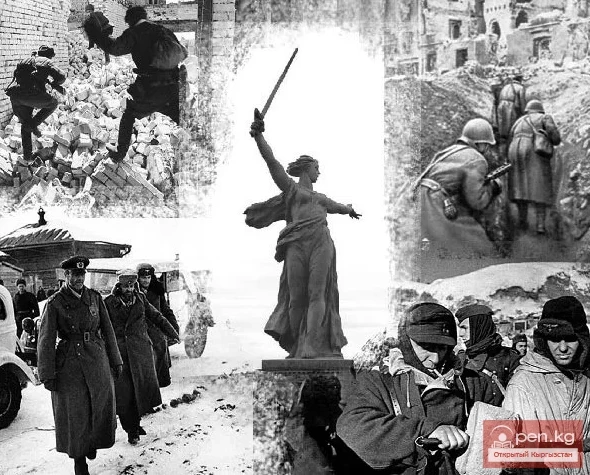
Recalling the beginning of our offensive at Stalingrad, Marshal K. K. Rokossovsky wrote: “...Through binoculars, I watch the assault on the chalky steep heights... It is visible how our soldiers, clinging to the ledges, climb up. Many fall, roll down, and then again stubbornly, helping each other, they scramble up the slope and attack the enemy.
The Germans are fighting desperately, but they cannot withstand it. Our infantry is throwing them off the heights...”
In December, Vasily was wounded again. Again, a hospital. Then — front reserve. His short letters home are full of faith in the imminent victory over the enemy.
“February 1, 1943.
I am in the front reserve. I am waiting for an assignment. I often think of home.
How are you living? Life is moving forward. My little sisters have probably grown up... I no longer know how to imagine them...
I am already twenty years old. I will add a year for the war and four for the institute. So, by twenty-five, I must become an independent citizen. Such a life plan I have outlined. I definitely want to get a higher education.”
Hundreds of kilometers were covered in battles by Senior Lieutenant Vasily Stepanenko. He participated in the defeat of the enemy near Kursk, in the liberation of the capital of Soviet Ukraine — Kyiv. “...We moved further west,” he wrote in February 1944. “We are going through the places where Taras Bulba once roamed. The fascists have little time left to hold onto Russia...”
“Hello, dear sister!
After two months of fierce battles, our unit has once again gone on rest. I am alive and healthy. Behind us are Lviv, Old Russa, the Vistula, Sandomierz. I have been recommended for the rank of captain and an order.”
Short, terse lines of a front-line letter. But behind each line, each word — the soldier's feat of every hour. Unavoidably, the memories of Marshal G. K. Zhukov come to mind about how one of the companies carried out the order to cross the Vistula:
“There were just over fifty men in the company. As soon as we landed on the western bank, the enemy immediately shelled them and then attacked. They repelled the first attack, but then came the second, and then the third. The next day, they were continuously attacked by enemy tanks and infantry. The last attack was particularly fierce. No more than twelve men were left in the company. Before the last enemy attack, the company commander said: ‘Guys, we are few. By evening, reinforcements will arrive, but until then, we will hold on to the last drop of blood, and we will not surrender our position to the enemy.’
Another attack by enemy tanks and infantry began. Several vehicles approached almost closely. The commander threw a grenade, knocked out a tank, and then rushed at the second one with a bundle of grenades. The attack was repelled. The commander was killed. Only six men remained from the entire company. Soon reinforcements arrived...
And in the early days of the war and now, at its concluding stage,” writes G. K. Zhukov, “the greatest readiness of the Soviet person for self-sacrifice in the name of the Motherland has remained unchanged...”
How many incredibly difficult crossings were there on Vasily's front-line path!..
“January 28, 1945.
Hello, dear ones!
For sixteen days, I have been participating in battles without interruption. One of the first, with my unit, I crossed the Oder River, for which I have been recommended for the highest government award. Yesterday I received the rank of captain.”
Vasily does not mention the price at which he and his soldiers crossed the Oder. We learned about this from his award sheet, from a letter from his sister Valentina Vasilievna, who put in a lot of effort to restore the circumstances surrounding her brother's feat.
The Germans called the Oder the river of German destiny. More than two hundred infantry, tank, and motorized divisions were pulled here. The fascists created a powerful, deeply echeloned defense here. Hitler and all the German high command hoped to stop the advance of the Red Army at the Oder.
At noon on January 23, the 467th Guards Mortar Lviv Regiment reached the eastern bank of the Oder. Captain Vasily Stepanenko's battery immediately began to cross the river. They crossed under heavy enemy fire. The water boiled from the explosions. There was nowhere to hide. But the brave men stubbornly moved forward.
A few meters from the enemy bank, they plunged into the icy water. The biting cold numbed their muscles.
Soaked, heavy overcoats pulled them down. And they still had to push the rafts with mortars and ammunition ahead of them.
Barely reaching the shore, Stepanenko's battery immediately opened fire on the enemy's fortifications. The first piece of land on the western bank was occupied.
“...For the courage and bravery displayed in battles against the fascist invaders, for exemplary performance of command assignments, he is worthy of a government award — the title of Hero of the Soviet Union,” wrote the commander of the regiment, Guards Lieutenant Colonel Chernyavsky, in the award sheet on January 28, 1945.
Meanwhile, Captain Stepanenko's battery, breaking through the fierce resistance of the Germans, continued its march westward.
On February 18, he writes:
“Today we crossed the Spree River, the river on which Berlin stands. The roar of battle is moving westward. This is a good sign.
I live like a soldier: by day, by hour, by battle. Until we meet again!”
Two and a half months passed. On May 2, the Banner of Victory soared over the Reichstag. “Our soldiers rejoiced,” recalled Marshal K. K. Rokossovsky later. “I looked at their ecstatic faces and rejoiced with them.
Victory! This is the greatest happiness for a soldier, the realization that you helped your people defeat the enemy, defend the freedom of the Motherland, and restore peace to it. The realization that you fulfilled your soldier's duty, a heavy and beautiful duty, above which there is nothing on earth!”
The Banner of Victory waved over the Reichstag. This was the last thing Vasily Stepanenko saw. He reached Berlin.
He dreamed of this, he wrote about it in his letters. But he could not keep his main promise — to stay alive.
How many times during the years of war did death breathe in his face, but passed by. And here, in Berlin, at the walls of the defeated Reichstag, on the threshold of the long-awaited Victory, he could not avoid it.
And here is another letter. The last one.
“Dear Augustina Iosifovna!
According to the report from the Military Command, your son, Guards Captain Stepanenko Vasily Vasilievich, died a heroic death in the battles for the Soviet Motherland.
For the heroic feat accomplished by your son Stepanenko Vasily Vasilievich in the struggle against the Hitlerite invaders, the Presidium of the Supreme Soviet of the USSR, by decree of April 10, 1945, awarded him the highest distinction — the title of Hero of the Soviet Union.
Chairman of the Presidium of the Supreme Soviet of the USSR N. SHVERNIK.”
More than forty years have passed since Vasily Stepanenko left the walls of his native school. His peers have long since become fathers and grandfathers.
He did not leave them a will. He left them his immortal feat and letters that teach patriotism, love for the Motherland, courage, and resilience.
M. RONKIN,
N. TARTAKOVSKY
